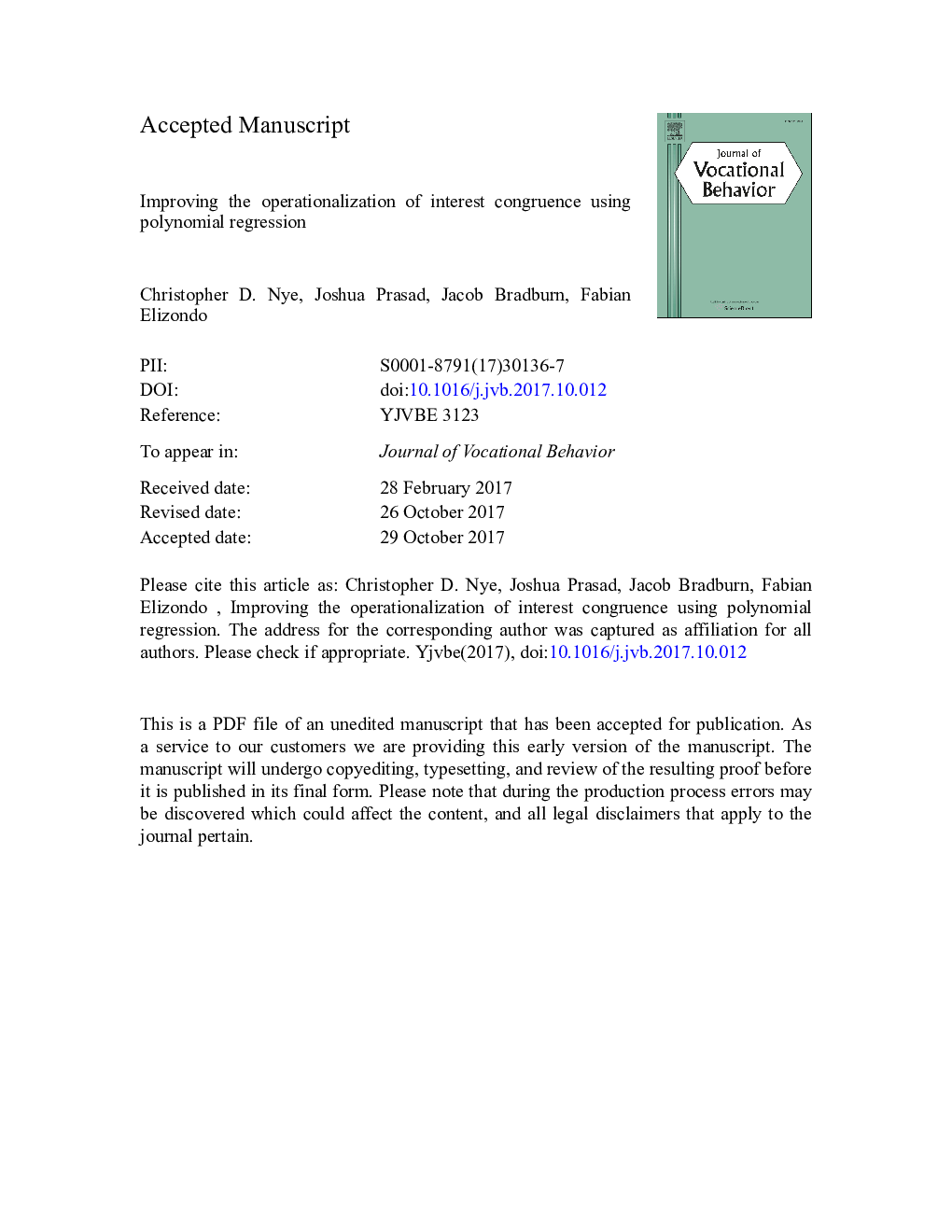| Article ID | Journal | Published Year | Pages | File Type |
|---|---|---|---|---|
| 7247406 | Journal of Vocational Behavior | 2018 | 55 Pages |
Abstract
The concept of congruence, or the match between an individual and his or her environment, plays a major role in Holland's (1959, 1997) theory of vocational interests. Despite this emphasis, empirical research on the validity of congruence indices for predicting some outcomes has been somewhat disappointing (e.g. Assouline & Meir, 1987; Tinsley, 2000). Although recent research has found that congruence indices can provide meaningful improvements in validity (Nye, Su, Rounds, & Drasgow, 2017), it is widely recognized that these indices have a number of conceptual and methodological flaws (Camp & Chartrand, 1992; Edwards, 1993). To help address this issue, the present work demonstrates the potential benefits of operationalizing interest congruence using polynomial regression (Edwards, 1994) and discusses how such a method can yield more nuanced details about the importance of vocational interests for predicting work and academic outcomes.
Related Topics
Social Sciences and Humanities
Business, Management and Accounting
Marketing
Authors
Christopher D. Nye, Joshua Prasad, Jacob Bradburn, Fabian Elizondo,
